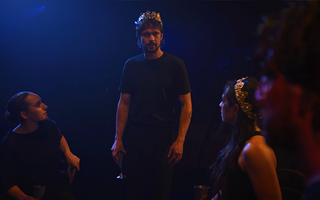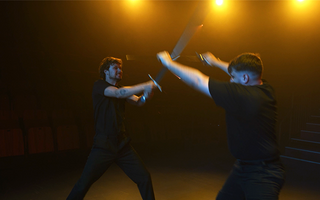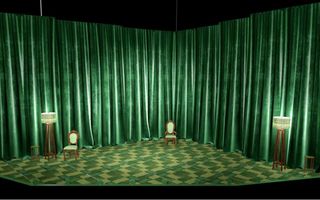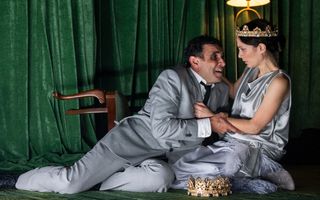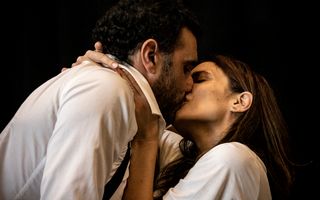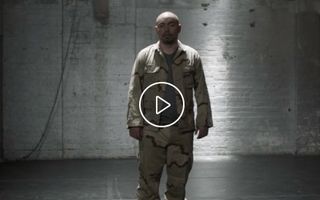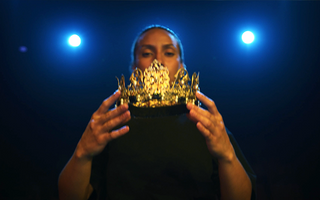 Watch
Watch
For a long time Macbeth was considered an unlucky, cursed play (despite being hugely popular), and stories have long-circulated about terrible accidents, injuries, illnesses and deaths that have occurred to actors and crew members whilst working on it.
Some believe it is because Shakespeare included actual rituals and incarnations of witchcraft in the play. Others believe that the theory originated because staging Macbeth, a blockbuster assured of good ticket sales, was often something a theatre company would do if it was in dire straits and on the verge of financial collapse.
Whatever the reason, many artists to this day still refuse to say the word ‘Macbeth’ inside a theatre, and refer to it instead as ‘The Scottish Play.’ If you say the name of the play inside a theatre, there are various acts that can be performed to counteract the curse. Some actors will insist that you have to go outside and run around the theatre three times, while others think you can get by with turning around on the spot three times and spitting on the ground.
Whether the curse is real or not, a number of unfortunate and disastrous events have occurred over the years when the play was being performed. Here are just some of the ‘cursed’ stories:
- Folklore tells us that the chain of bad luck began with the very first performance of Macbeth (circa 1606) when the young male actor cast to play Lady Macbeth suddenly took ill or died and Shakespeare himself was forced to replace him.
- Apparently in Amsterdam in 1672, an actor playing King Duncan was actually murdered on stage when a prop dagger was replaced with a real one and used during Act 2, Scene 2.
- During an 1849 production in Manhattan at the Astor Opera House, a deadly riot erupted in the audience over a long-standing rivalry between fans of British actor William Charles Macready and American actor Edwin Forrest. 31 people were killed and over 120 were injured.
- In 1937 Laurence Olivier was preparing for opening night at the Old Vic when he suddenly lost his voice and a heavy weight fell from the wings of the theatre and nearly killed him. Olivier survived, but a few days later the theatre manager Lillian Baylis died of a heart attack. This production was particularly fraught: one of the swords used in the fight scene slipped out an actor’s hand during a performance and flew into the audience, injuring a patron.
- In 1942, during a London production of Macbeth starring John Gielgud, three of the actors in the show died, and on the day the show opened, the set designer died by suicide.
- In 1947 actor Harold Norman was playing the title role when one of the battle scenes became a little too realistic and he was actually killed on stage. Apparently he did not believe in the superstition.
- In 1948 British actress Diana Wynyard told a reporter she thought the curse was ridiculous. The following night whilst performing Lady Macbeth’s sleepwalking scene she walked right off the stage and fell into the orchestra pit.
- John Bell was in a production of Macbeth in London in 1967, playing Lennox. He remembers that, “the director Peter Hall contracted a severe attack of shingles and the production had to be postponed for six weeks.”
- In 2011 the actor playing Macbeth for the Royal Shakespeare Company, Jonathan Slinger, was knocked off his bike on his way to the theatre and broke his arm.
- When Peter Evans directed Macbeth in 2012 for Bell Shakespeare, many of the cast members got severe food poisoning and were hospitalised. Opening night had to be cancelled and the start of the season was rescheduled, with two actors and the assistant director ending up in hospital.
